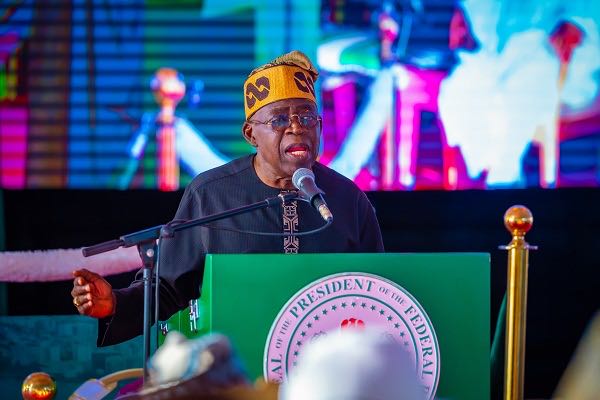ICYMI: Understanding the State of Emergency Declaration in Rivers State and the Constitutionality of Fubara’s Suspension

BY: Oluwaseye Ogunsaya & Abdulraheem Muhammed
On March 20, 2025, President Bola Tinubu in a nationwide broadcast on Tuesday evening declared a state of emergency in Rivers State. This declaration according to the him was prompted by prolonged political instability, constitutional breaches, and security threats in the state. Alongside the emergency declaration, the president suspended Governor Siminalayi Fubara, his deputy Ngozi Odu, and all elected members of the Rivers State House of Assembly for an initial period of six months and the appointment of a sole administrator. This decision has generated significant debate about its constitutionality and the broader implications for governance in the state.
Background of the Crisis
The political climate in Rivers State had been tumultuous for over 15 months. The situation was marked by allegations of corruption, threats of impeachment against the governor, and unrest among lawmakers. Tensions escalated after a Supreme Court ruling confirmed the legitimacy of a faction of the state assembly loyal to former Governor Nyesom Wike, who is now the Minister of the Federal Capital Territory. This ruling further deepened divisions and dysfunction within the state’s government.
Constitutional Basis for the Emergency Declaration
The authority to declare a state of emergency is outlined in Section 305 of the 1999 Constitution (as amended). This provision allows the President to declare such a state in specific conditions such as the following
- War or imminent danger of war
- Breakdown of public order and safety to the extent that extraordinary measures are needed to restore peace
- Natural disasters or other calamities affecting a community or a section of the country
- Any other public danger that threatens the existence of the federation
- A formal request by the state governor
Also, it requires the approval of at least two-thirds of both chambers of the National Assembly within two days (if in session) or ten days (if not in session). If approved, the state of emergency remains in effect for six months and can be extended if necessary.
Consequently, both the House of Representatives and the Senate, on Thursday, approved the emergency declaration. Senate President Godswill Akpabio noted that the decision was necessary to restore stability in Rivers State and protect national economic interests.
The Constitutionality of the Suspension of Fubara, His Deputy and House of Assembly Members
The suspension of Governor Fubara and other officials has raised serious constitutional questions. Critics argue that the Nigerian Constitution does not grant the President or the National Assembly the authority to suspend elected state officials during a state of emergency. The 1999 Constitution of Nigeria (as amended) provides clear guidelines on the tenure and removal of a state governor. Section 180(2) guarantees a governor a four-year term, except in cases of impeachment, permanent incapacity, death, or resignation. Sections 188-189 also outline the impeachment process, requiring due process through the State House of Assembly, while Sections 191(3) & 306(5) specify the conditions for a governor’s resignation. At no point does the Constitution grant the President the power to remove or suspend a sitting governor. Governors derive their legitimacy from the electorate, and their removal must follow constitutional procedures.
Historical precedents further highlight the limits of emergency powers. In 2004 President Olusegun Obasanjo declared a state of emergency in Plateau State following a surge in ethno-religious violence that led to widespread killings and destruction. The governor and state assembly were suspended, and Major General Chris Alli (retd.) was appointed administrator to restore order and in 2006 Ekiti State emergencies, leadership crisis in Ekiti State prompted Obasanjo to impose emergency rule in October 2006. The crisis stemmed from the controversial impeachment of Governor Ayo Fayose, which plunged the state into chaos. Brigadier General Adetunji Olurin (retd.) was appointed administrator until the situation stabilized.
In May 2013, Jonathan declared a state of emergency in Borno, Yobe, and Adamawa state due to the lingering Boko Haram insurgency, with bombings, abductions, and territorial seizures overwhelming local security forces in the three states. Unlike Obasanjo, Jonathan did not suspend the elected governors — Kashim Shettima, Ibrahim Geidam, and Murtala Nyako — but imposed dusk-to-dawn curfews, deployed heavy military presence, and granted security forces sweeping powers. This underscores the principle that state institutions, including the governorship, must remain intact even during emergencies.
Judicial interpretations have consistently reinforced the limits of presidential powers. In Attorney-General of Abia State v. Attorney-General of the Federation (2002), the Supreme Court ruled that the President cannot exercise powers beyond what the Constitution expressly provides. Applying the legal principle of expressio unius est exclusio alterius (the express mention of one thing excludes others), since the Constitution does not explicitly grant the President the power to suspend a governor, such an action is unconstitutional. Furthermore, Nigeria’s current presidential system is distinct from the 1962 parliamentary system, where Parliament could remove a regional premier. In today’s federal structure, all powers must derive strictly from the Constitution.
What Are The Reactions?
Prominent legal experts have described the suspension as unconstitutional, warning that such actions could set a dangerous precedent for executive overreach and undermine the separation of powers that are essential to Nigeria’s democracy. Various political groups and civil society organizations have condemned both the emergency declaration and the suspensions.
The Nigerian Bar Association (NBA) has strongly condemned the President’s suspension of Governor Fubara, calling it an unconstitutional usurpation of power. The NBA’s official statement, signed by its President, Mazi Afam Osigwe, SAN, outlines the legal and constitutional violations involved. The NBA president states that “Affirms that the President does not have the constitutional power to remove an elected governor under a state of emergency. Any such action is an unconstitutional encroachment on democratic governance and the autonomy of state governments.”
The NBA questions whether the political crisis in Rivers State meets these conditions, arguing that political disagreements and executive-legislative tensions do not justify emergency rule. He also states “Calls on the National Assembly to reject any unconstitutional attempt to ratify the removal of the Rivers State Governor and other elected officials. The approval of a state of emergency must be based on strict constitutional grounds, not political expediency”
Additionally, the South-South Governors’ Forum has expressed that the conditions for declaring an emergency were not met, arguing that political disputes should be resolved through constitutional means rather than through executive action. Similarly, Governors of the Peoples Democratic Party (PDP) comprising those of Bauchi, Adamawa, Bayelsa, Enugu, Osun, Plateau, and Zamfara states have filed a suit at the Supreme Court challenging the declaration of the state of emergency rule.
Among other things, they argued that the President lacks the constitutional power to suspend a democratically elected governor and deputy governor, contending that the appointment of a sole administrator is unconstitutional. According to court documents, the governors are seeking a declaration that the President’s actions violate Sections 1(2), 5(2), and 305 of the 1999 Constitution (as amended).
They further maintained that the President has “no powers whatsoever or vires to suspend a democratically elected governor and deputy governor of a state in the federation of Nigeria under the guise of or pursuant to the proclamation of a state of emergency.”
What are the implications of the Declaration?
The implications of the emergency declaration are multifaceted. Supporters, including members of the ruling All Progressives Congress (APC), argue that this measure is essential for restoring governance in Rivers State, which they claim has reached a critical point. They believe that swift action is necessary to address the escalating political instability and security concerns in the region.
In response to the crisis, the National Assembly has suggested forming a committee of respected Nigerians to mediate between the conflicting parties in Rivers State. However, the declaration has faced widespread public criticism. Many citizens view the suspension of elected officials as an overreach of power, raising significant concerns about its impact on democracy in Nigeria. The attached report warns that if such actions are permitted to continue, they could set a dangerous precedent, allowing future Presidents to remove elected officials arbitrarily under the guise of emergency powers.
Conclusion
The declaration of a state of emergency in Rivers State has sparked a complex discussion about governance, constitutional rights, and executive power in Nigeria. While the government argues that the decision is crucial for stability, critics warn that it undermines democratic principles and sets a troubling precedent. Upholding the rule of law requires a return to constitutional order, ensuring that no President exceeds the powers granted by the 1999 Constitution. The resolution of this crisis will ultimately depend on the willingness of all parties to engage constructively and uphold the rule of law, preserving the principles of federalism, separation of powers, and the supremacy of the Constitution to safeguard Nigeria’s democracy.




